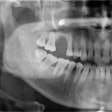In many divorce cases, one of the parties to the issue, it seems, is always maneuvering for a delay in the proceedings. It may be that the litigant thinks the financial statements and tax returns may significantly change in his or her favor.
Sometimes there is a deliberate attempt to force change to the betterment of the aggrieved party by applying concepts that are difficult for a novice evaluator or general certified public accountant (CPA) to be able to prove. An example may be if the financial statements have consistently reported high earnings and high gross revenue and suddenly there is a downward trend in net income and gross revenue.
 Bruce Bryen, CPA, CVA.
Bruce Bryen, CPA, CVA.
Good dental practice evaluators will want to find out why this is happening. Could the dentist have reduced the number of hours of work at the practice, and are they seeing fewer patients? Is it possible that billings have been held and cash flow at the dental practice has decreased as a result?
The experienced dental practice evaluator knows to look at the dentist’s appointment book, accounts receivable aging schedule, bank statements, and other data for support about patient billing and collection. Interviews with staff members also allows the dental practice evaluator to learn about material changes in office procedures and policies while the divorce is ongoing.
Comparing pre-divorce activity to the current legal situation, where a divorce is in the works, allows the evaluator to write his or her report with much more information and accuracy. This information can assist the court in its rendering.
The approach with the court or the mediator
It is much easier for a judge or a mediator to allow the parties to continue with their activities in what may seem like an attempt to settle the dispute rather than deciding on a case where most of the arguments have not been resolved.
Unfortunately, many times a judge will order mediation before the parties arrive in the courtroom. This strategy is an attempt by the courts to arrive at the narrowest of issues that have not yet been resolved by the parties.
Judges want their time to be occupied with issues that have not yet been settled and require the wisdom of the courts rather than additional emotional matters that the litigants can conclude with help from their advisers. Mediation is also one of the least expensive formats for those involved with a divorce proceeding rather than going to court.
Civil litigation is probably one of the most expensive methods of resolution in cases of divorce. Attorneys and experts typically charge more for courtroom appearances than for other types of work they do.
This is because there are motions to file, orders that the courts may want enforced immediately, and communication between attorneys during this process. Sometimes a judge requires these points to be resolved to conclude the case as quickly as possible. Therefore, attorneys and experts may work around the clock preparing responses to judicial orders, awaiting responses, and then responding in kind before the next court date.
Is mediation a help or a hindrance?
Mediation can be used as an opportunity by a participant to obtain a postponement. Stalling for what would be a presentation of data supporting a practice's financial deterioration can assist a dentist who may be trying to present financial statements that reveal losses or at least a lessening of gross revenue and lower profits.
If a judge orders mediation before trial, he or she is hoping that it allows the more minor problems to be resolved. Even though the parties and their attorneys may feel like it is a waste of time, since a judge ordered it, the mediation must occur. Many times, there is little progress.
The dentist may be pleased that there is a delay. It keeps the practice's reduction in gross revenue and net income continuing, and those records have more time to accumulate lower numbers regarding gross revenue and net income.
The non-dentist party may have little leverage in that situation. The best advice for a non-dentist party during divorce proceedings is to retain an experienced dental CPA and dental practice evaluator who can examine the dental practice's financial records. These experts have experience drawn from other legal proceedings, so they know what to look for and can help create a reasoned financial perspective of a dental practice's value.
Bruce Bryen is a certified public accountant with over 45 years of experience. He specializes in providing litigation support services to dentists, with valuation and expert witness testimony in matrimonial and partnership dispute cases. Bryen assists dentists with financial decisions about their practice, practice sales, evaluating whether to join a dental service organization, practice evaluation during divorce proceedings, and questions about the future or financial health of dental practices. He can be reached at [email protected].
The comments and observations expressed herein do not necessarily reflect the opinions of DrBicuspid.com, nor should they be construed as an endorsement or admonishment of any particular idea, vendor, or organization.



















